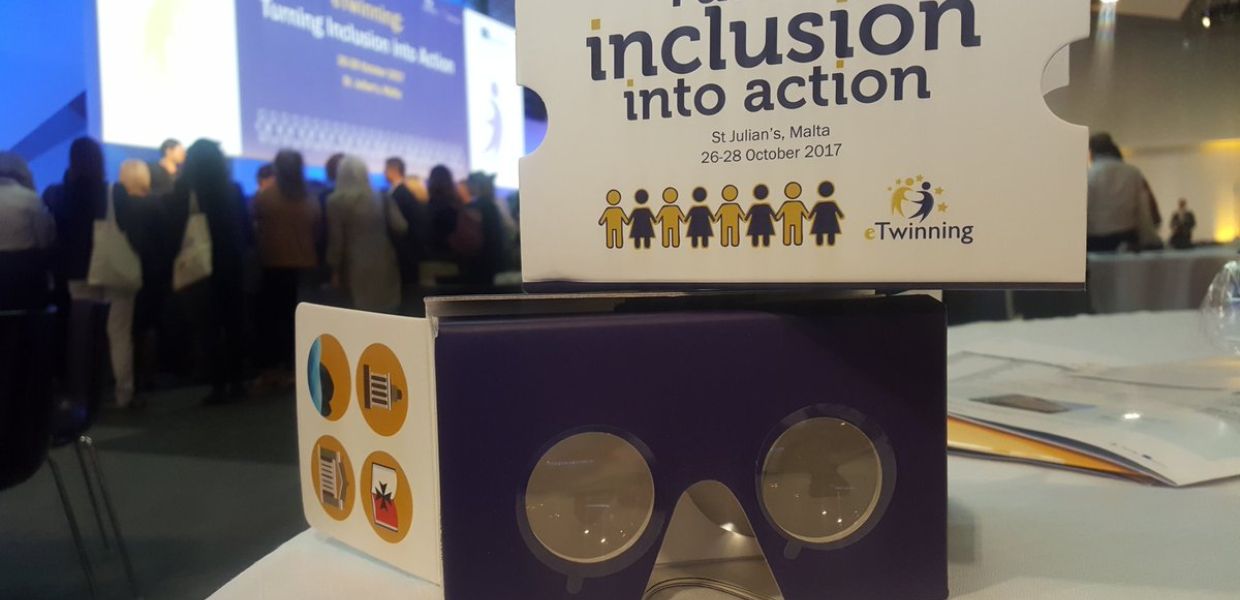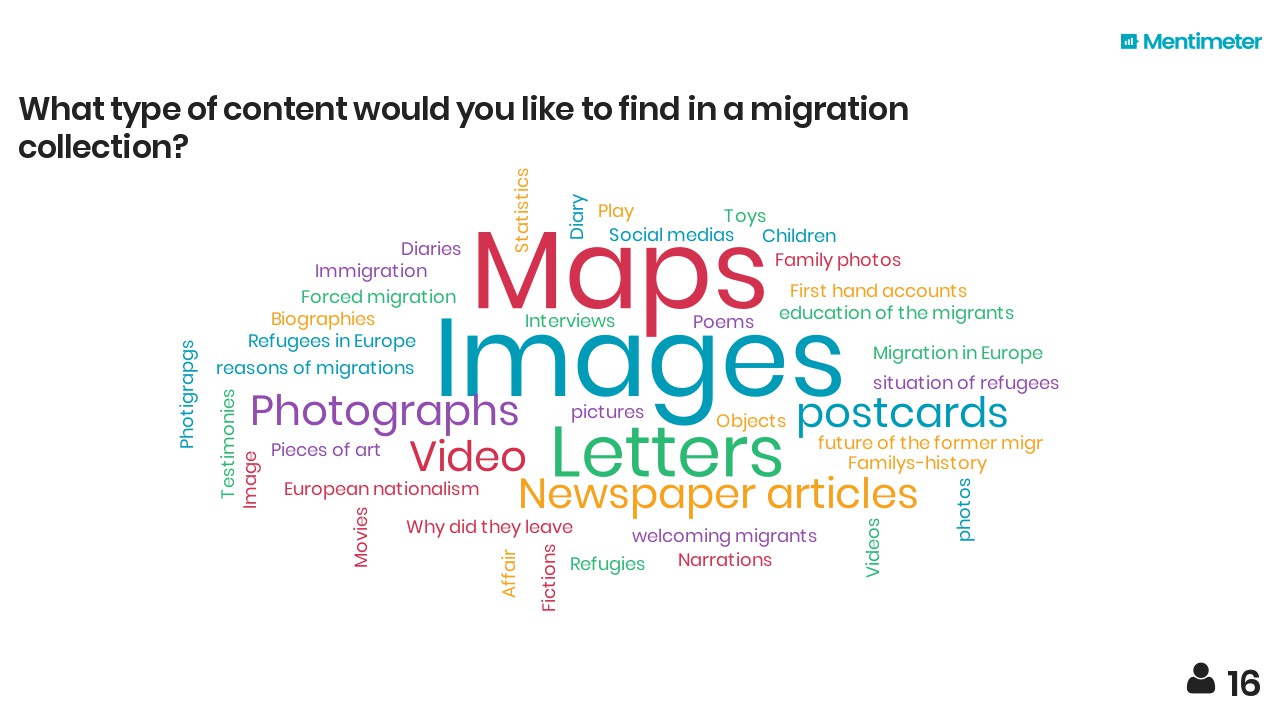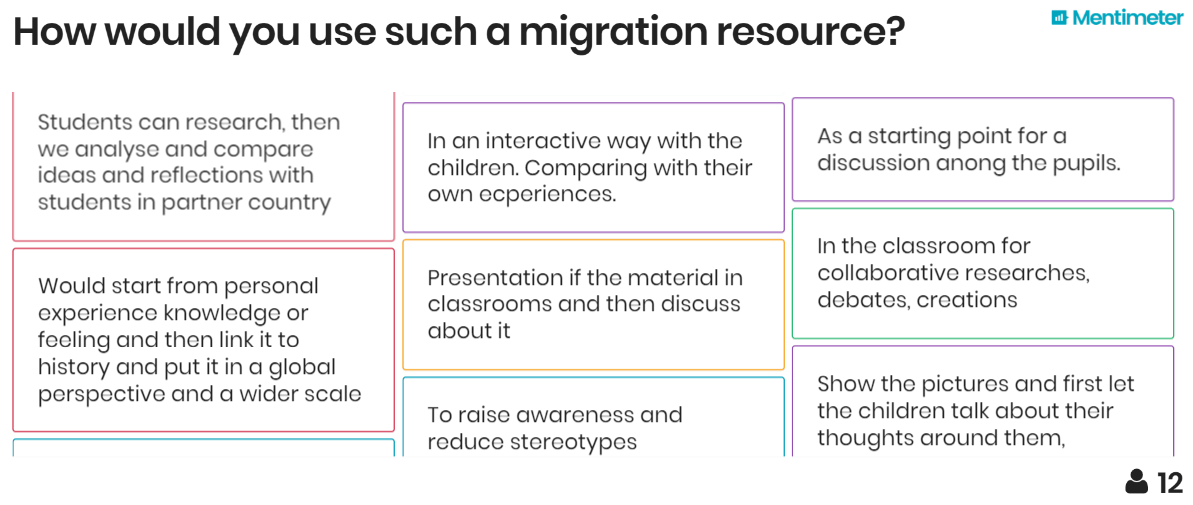Culture for inclusive education at the eTwinning conference

- Title:
- Image by @eTwinningUK.
Europeana joined for the first time the annual conference of eTwinning, the community of 500,000+ teachers and 180,000+ schools in Europe. Launched in 2005 as the main action of the European Commission’s eLearning Programme, eTwinning promotes school collaboration in Europe through the use of Information and Communication Technologies (ICT) by providing support, tools and services for schools.
eTwinning annual conference 2017 took place between 26 and 28 October in Malta and brought together 700 member educators for three intense days of discussions and networking. The event aimed to share how eTwinning could raise the capabilities of schools to address three main factors of exclusion: cultural differences, educational difficulties and geographical obstacles. In this aspect, eTwinning can turn inclusion into action via specific international projects, dedicated professional development opportunities and connecting teachers so that they feel part of an inclusive community.

Milena Popova, presenting Europeana at eTwinning conf, eTwinning Ireland. (Photo by eTwinning Ireland, @Leargas_etwinn).
The conference program reflected the above mentioned focus and areas of action. eTwinners could choose among over 40 workshops on a wide range of topics, from the eTwinning capabilities for inclusion ( eTwinning groups, synergies with Erasmus+) to development of intercultural competences, use of technologies for education (creative coding, digital game-based learning) and theme-specific digital learning resources (science, history, migration). The track “eTwinning in practice” presented the European Prize winners and runners-up from the eTwinning annual competition for best educational projects in three age-related categories (4-11, 12-15 and 16-19 yrs). Several teach & meet sessions and the two networking evening events strengthened the community bond and added extra positive vibe.
Europeana contributed to the conference theme through the workshop on 28 October “Migration & Culture: how can our past educate our present and support inclusive education”. The 25 attendees represented a mix of primary and secondary education and diverse subjects (from foreign languages to history, arts and ICT). The workshop started with an introduction of Europeana and its resources for education, followed by a presentation about the ongoing activities and next steps on building an online resource on the topic of migration. Europeana Migration thematic collection will showcase institutional and user-generated content and narratives relating to the migration from and within Europe. It aims to raise the awareness that personal identity is made up of many cultural influences and in this way help celebrate diversity and support inclusion.
In the second half of the workshop, we worked with the teachers on making the migration online resource relevant for their classes. First, we presented to them eleven potential content items chosen from collection (from photographs to postcards and videos) and asked to rate them according to their relevance for teaching and learning. Photographs showing migrants, official documents and postcards scored highest in this survey.
Next, we brainstormed about the scope and use of the migration resource in education. In particular, we explored the type of content teachers would like to find in such a migration resource and how they would use it for teaching and learning.


Our workshop at the eTwinning conference was a great opportunity to raise the awareness of Europeana and the migration resource in particular among educators and encourage its reuse for learning. The participants were enthusiastic about Europeana Collections and several of them shared that they would promote it to their peers and students. This positive feedback is very encouraging with regard to our future activities with the eTwinning community. In line with the European Year of Cultural Heritage in 2018, eTwinning will explore the role of cultural heritage in education. A few learning events with Europeana on this topic are already in discussion.
To learn about our latest educational developments, join Europeana Education LinkedIn group and follow us on @EuropeanaEU!

